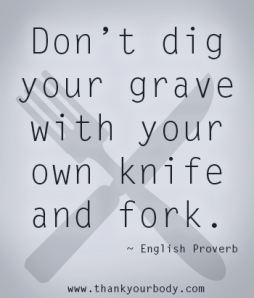Sometimes I go looking for trouble, sometimes it finds me.
The other day I was sitting in the waiting room at the hospital waiting for my pacemaker review. I glanced at the stack of magazines on the table next to me, pushed aside the ‘Women’s Weekly’ and ‘That’s Life’, and picked up a glossy beast innocuously titled ‘Women’s Health’.
I started to flick through. I don’t know exactly what I expected, but I really thought there might be something in it actually beneficial to women. Clearly my years of avoiding commercial media have made me soft. What I saw was a manual for making yourself sexually attractive to men.
The quick-fix diets, the fashion and make-up tutorials, and most disturbingly, the ‘what men really think’ article that could be summed up as ‘men want women to pander to their every requirement, and be decorative and sexy but also faithful and not slutty, while men do whatever the hell they want’. I pulled a face and put the magazine back on the stack at this point.
Seriously, this magazine doesn’t even try. It is just another waste of paper telling women how to fit into the tiny box of ‘acceptable’ that has been created to control how we look and how we live.
So of course, I went looking for trouble. I visited the websites of both Australian Women’s Health and Australian Men’s Health to see what kind of message these publications are peddling.
Women’s Health in a nutshell – how to get your chocolate fix without getting fat. How to drop a dress size – fast! How to zap belly fat or get great legs. The Fitness section had subheadings for Running and Yoga – activities that are not likely to cause increase in muscle mass and therefore affect your apparent femininity.
Men’s Health had different subheadings in the Fitness section – Muscle Building and Cardio. Because apparently muscles are only for men. Weight loss short-cuts also feature, and under the heading Sex and Women is a section on how to ‘improve your game’, also known as ‘getting women to have sex with you’.
Where Women’s Health has recipes and nutrition information, Men’s Health has supplements and cooking tips. Apparently women know how to cook, but men don’t.
One of the first articles I saw on the Men’s Health page was about ‘ticking off your bedroom bucket list’. This is an article about getting your partner to indulge your sexual fantasies. And it begins with the author doing ‘what any man would do’ – plying his partner with alcohol to make her more receptive to his suggestions. According to Men’s Health, manipulation and coercion are an important part of the male sex life. Good to know.
Presumably that is why Women’s Health is dedicated to making women decorative and sexy and fuckable and educating them on how to do what a man wants in bed.
The covers and images of both these magazines are so bland and generic as to almost be sterile, yet the air of casual harmlessness hides a disturbing theme. They tell men that they must be buff and tanned and healthy in order to get all the women. They tell women that they must be slim and tanned and healthy and wear just the right amount of make-up in order to be seen as acceptable.
These magazines are the media equivalent of that moron internet troll who tells everyone that fat people are gross because they are unhealthy. They are the published version of the constant reinforcement of the gender binary. Their titles suggest that they care about the wellbeing of people, but their content perpetuates the sterotypes that harm every person who does not look like the airbrushed models in the photographs.
Why can’t there be a magazine simply called ‘Health’, which is gender neutral and doesn’t set out to divide the population? Eating well, getting enough sleep, exercising and managing your mental health are issues relevant to all people.
On the topic of mental health, I did a search for ‘depression’ on the page of both magazines. Nothing showed up in the links for either on the main pages, so I had to do some digging. It seems that mental health is not sexy or cool enough to feature in these publications, despite it being a huge health issue for men and women.
I think what bothered me the most about the content of these magazines, is that they seem to represent the attitudes of society in general. Rags like Cosmopolitan and Cleo make a point of being racy and over-the-top, but these Health magazines present as wholesome advice for everyday living, rather than the manuals for slotting seamlessly into the patriarchal abyss that they actually are.


